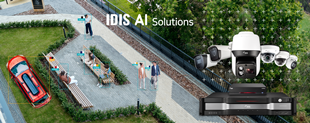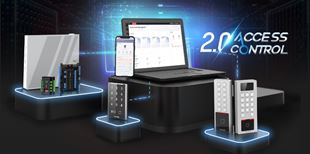The researchers find that the growth of the hardware security modules market is driven by increasing data breaches and cyber attacks, need to follow stringent data security compliances, and emergence of digital transactions, electronic payments leading to rise in the need for protecting sensitive financial data.
Cloud deployment is projected to hold a strong position
The cloud segment is expected to hold a larger market share in 2028. The cloud based HSMs have the abilities to perform cryptographic operations and give customers absolute control over keys through separation of duties. These modules enable quick scalability for users by means of adding and removing hardware security module capacity on-demand, with no up-front costs. For cloud based HSMs, it is possible to generate its own encryption keys on the cloud. Cloud HSM offer flexibility in terms of integration with applications such as APIs, Java Cryptographic Extension and so on. For example, researchers cite the case of, Futurex LP who launched the industry’s first web API for payment HSM in January 2021. This HSM has been designed to integrate Payment application with Futurex enterprise encryption and key management technology i.e. Futurex’s Virtucrypt cloud payment HSM. These benefits coupled with the growing demand for cloud services for data storage purpose, are driving the segment’s growth.
LAN-based/network attached hardware security modules offer high security
LAN-based/network-attached hardware security modules are expected to dominate the hardware security modules during the forecast period.LAN-based/network-attached hardware security modules deliver cryptographic services as a shared network resource for distributed applications and virtual machines, giving organisations a highly secure solution for establishing physical and logical controls for server-based systems. These modules provide a network-based platform for several applications to access the cryptographic operation performed on their behalf (e.g., a shared signing or encryption application). This approach provides several advantages, e.g., the key can be managed in one location rather than multiple application servers, resulting in a centralised key management system and data security.
Europe to hold a major market share
The European region is expected to hold the largest share of the hardware security modules market during the forecast period. Several European countries are likely to generate substantial demand for hardware security modules, owing to their increasing adoption across diverse verticals, especially transportation, BFSI, retail, government, and healthcare. Moreover, the high focus of governments on digitalising the financial system in the region is further supporting market growth.
Europe being one of the most technologically advanced regions has high adoption of mobile devices and high internet penetration rates, which are the main factors driving the growth of the hardware security modules market in the region. Increasing urbanisation in emerging as well as developed economies, coupled with a growing middle-class population, has led to a surge in the adoption of hardware security modules in the region. The growing need for strong payment security measures and compliance management owing to the increased usage of the internet, social media, and online payment, is driving the adoption of hardware security modules in Europe.
Key players
The report profiles key players in hardware security modules market with their respective market ranking analysis. Prominent players profiled in this report include Thales, Utimaco, IBM, ST Microelectronics, Microchip Technology, Infineon Technologies, Swift, Atos, Yubico, Securosys, Syprus, Ledger, Ultra Electronics, Adweb Tech, Efficient India, Lattice Semiconductor, Ellipticsecure, Amazon, Entrust Security, Escrypt, Beijing Sansec Technology Development Co, Fortanix, Jisa Softech, Microsoft, Nitrokey, Kryptoagile and Kryptus.















